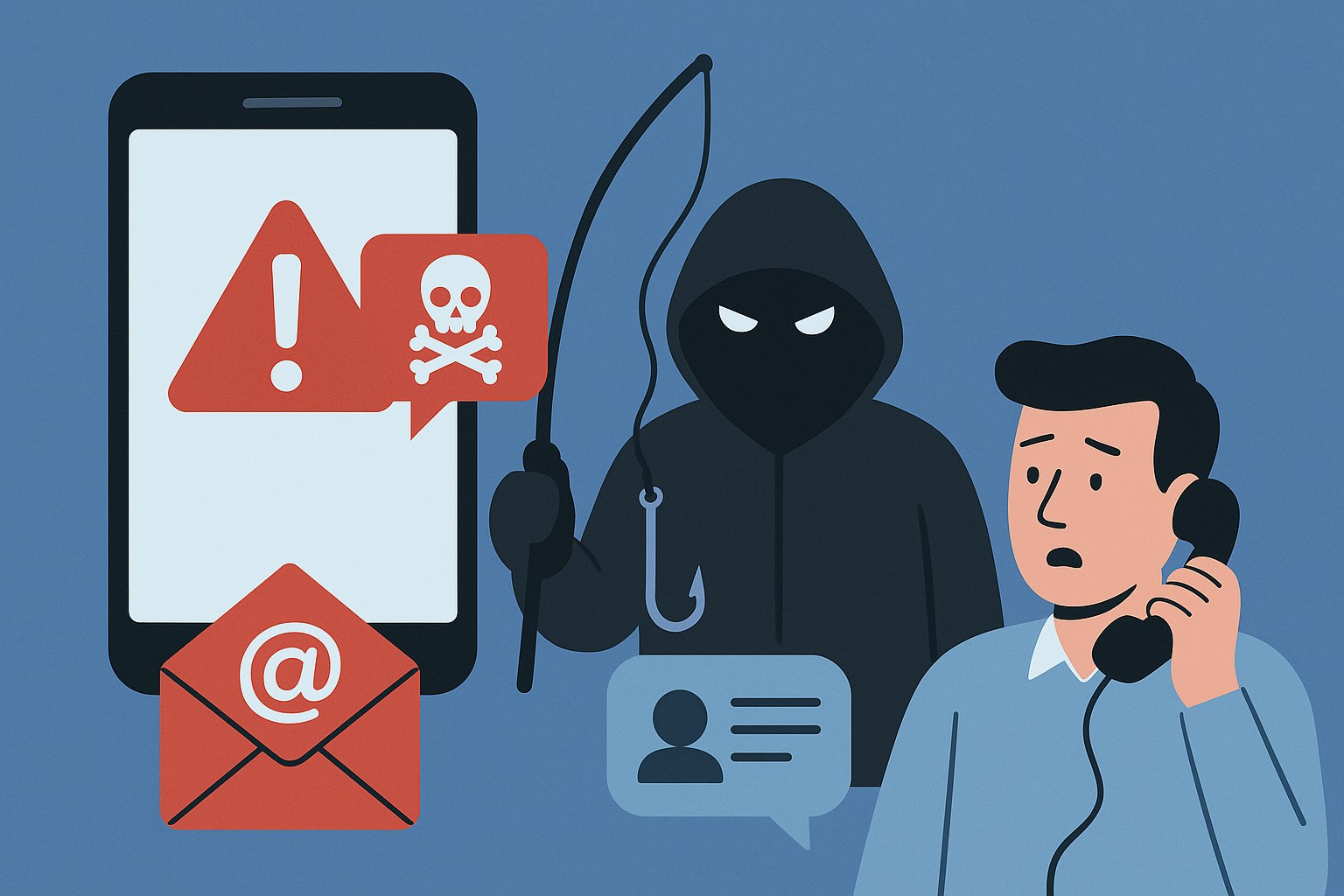Charities across the UK face growing pressure to do more with less—supporting communities, responding to crises, and running operations on tight budgets. This is where modern IT support and cloud-based tools like Microsoft 365 can make a huge difference. Reliable IT support ensures systems remain operational and secure, while Microsoft 365 offers affordable, scalable productivity solutions designed to help charities thrive.
Why IT Support Matters for Charities
Many charities operate with limited in-house technical expertise. They often rely on volunteers or overstretched staff to maintain ageing systems and outdated software. This not only affects productivity but can also introduce significant risks, including cybersecurity threats and data loss.
Here’s how professional IT support can transform operations for charities:
1. Maximising Efficiency and Uptime
Downtime can bring charity operations to a standstill. Whether it’s donor systems, case management tools or websites used for fundraising, keeping these systems up and running is vital. A managed IT support provider ensures:
- Fast response to technical issues
- Remote monitoring and maintenance
- Proactive problem-solving before things break
This allows charity staff to focus on their mission rather than troubleshooting tech problems.
2. Cybersecurity and Data Protection
Charities handle sensitive personal information—beneficiaries’ details, financial records, donor data—and are increasingly targets for cyberattacks. According to the UK’s Charity Commission, cybercrime is one of the fastest-growing threats to charities.
An IT support partner can:
- Implement strong security protocols (multi-factor authentication, firewalls, antivirus)
- Monitor for suspicious activity
- Ensure GDPR compliance
- Backup critical data securely
3. Strategic IT Planning and Budgeting
Charities need to make every pound count. IT support providers offer consultancy services to help charities align their technology strategy with their goals. This might include:
- Cloud migration planning
- Hardware refresh cycles
- IT roadmaps to support growth
- Budget-conscious solutions without compromising quality
Microsoft 365: A Game-Changer for Charities
Microsoft 365 (formerly Office 365) is more than just Word and Excel. It’s a cloud-based productivity suite that combines powerful tools for communication, collaboration, file storage, and security—all in one place.
And here’s the best bit for charities: Microsoft offers heavily discounted or free Microsoft 365 licences to eligible non-profits through its Tech for Social Impact programme.
Here’s why it’s worth considering:
1. Cost Savings for Charities
Microsoft 365 Business Basic is available for free to qualified UK charities, with premium licences offered at a significantly reduced rate. This means charities can access enterprise-grade software and security features for a fraction of the cost, including:
- Outlook email with custom domains
- OneDrive for Business (1TB per user)
- Microsoft Teams for communication
- SharePoint for internal collaboration
- Microsoft Defender for Business (with premium plans)
For smaller charities, this can lead to savings of thousands of pounds per year—funds that can be reinvested into charitable work.
2. Remote Work and Flexibility
The pandemic proved that remote work isn’t just for corporate businesses. Many charities now offer flexible working arrangements for staff and volunteers. Microsoft 365 supports this shift by enabling:
- Secure access to files and email from any device
- Real-time document collaboration through Teams and OneDrive
- Video meetings, chat and shared calendars
- Mobile apps to stay productive on the go
This flexibility means that teams can remain connected, whether they’re in the office, out in the field, or working from home.
3. Simplified Communication with Microsoft Teams
Teams brings together chat, video calls, file sharing and task management in a single app. For charities, it’s a central hub where staff and volunteers can:
- Hold virtual meetings or training sessions
- Chat in real-time instead of emailing
- Share files and updates across departments
- Create Teams for different campaigns or projects
This leads to faster decision-making, better collaboration and reduced email overload.
4. Secure Document Management
Charities often struggle with version control and secure file storage—especially when using consumer-grade tools like Dropbox or Google Drive. With Microsoft 365, you get enterprise-grade tools like:
- OneDrive for Business – personal cloud storage for each user, with version history and backup
- SharePoint Online – a centralised document library for the whole organisation, ideal for policy docs, HR, and training materials
Files are automatically saved to the cloud and can be restricted, shared or tracked as needed.
5. Enhanced Cybersecurity and Compliance
Security isn’t optional. Microsoft 365 includes built-in tools to help charities stay secure and compliant:
- Multi-factor authentication (MFA) to protect accounts
- Microsoft Defender to detect and block malware
- Data Loss Prevention (DLP) to prevent sensitive data being shared by mistake
- Encryption and rights management to control access to documents
Combined with good IT support, Microsoft 365 creates a robust foundation for data protection and compliance with GDPR.
How Charities Can Get Started with Microsoft 365
To benefit from Microsoft’s non-profit pricing, charities need to:
- Verify Eligibility
Register with Microsoft Nonprofits and submit the necessary documentation, such as charity registration numbers (e.g. from the Charity Commission). - Choose the Right Licences
Microsoft 365 Business Basic is free for up to 300 users, while Business Premium or E3/E5 plans are available at a discount. An IT support provider can advise on the best options for your needs. - Plan the Migration
Moving to the cloud takes careful planning—especially if you’re migrating from older systems. With the help of an IT partner, the transition can be smooth and minimally disruptive. - Train Your Team
Adoption is key. Many IT support providers offer training sessions to help charity staff and volunteers make the most of Microsoft 365, from Teams best practices to file sharing and cybersecurity.
Partnering with the Right IT Support Provider
Microsoft 365 is powerful, but it’s even more effective when paired with reliable IT support. A good provider will:
- Help your charity claim the right Microsoft licences
- Migrate your systems securely to the cloud
- Offer helpdesk support and training
- Monitor your environment for security threats
- Optimise your setup to maximise value
Look for IT companies with experience working with charities and a strong understanding of Microsoft solutions. Many offer packages tailored to the non-profit sector, including discounted rates and flexible contracts.
Final Thoughts
Charities can’t afford to rely on outdated tech or unsecured systems. Reliable IT support and cloud-based tools like Microsoft 365 offer a powerful, cost-effective way to boost productivity, improve collaboration, and protect sensitive data. With Microsoft’s generous non-profit programme and the guidance of a trusted IT partner, UK charities can modernise their operations without stretching their budgets.
By investing in the right tools and support, charities can focus less on IT headaches—and more on making a difference.
Related posts
Visit blog
ISSEY MIYAKE × Apple: The iPhone Pocket That Redefines How We Carry Technology
Looking to make smarter, data-driven decisions? Partnering with a UK Power BI consultancy like NetMonkeys transforms scattered business data into meaningful insights

Smishing vs Phishing vs Vishing: Key Differences Explained
Phishing, smishing, and vishing are evolving faster than ever — and businesses are paying the price. In this expert guide from the NetMonkeys Security Team, we break down how each scam works, why they succeed, and what practical steps you can take to defend your organisation

The Benefits of Working with a UK Power BI Consultancy
Looking to make smarter, data-driven decisions? Partnering with a UK Power BI consultancy like NetMonkeys transforms scattered business data into meaningful insights
